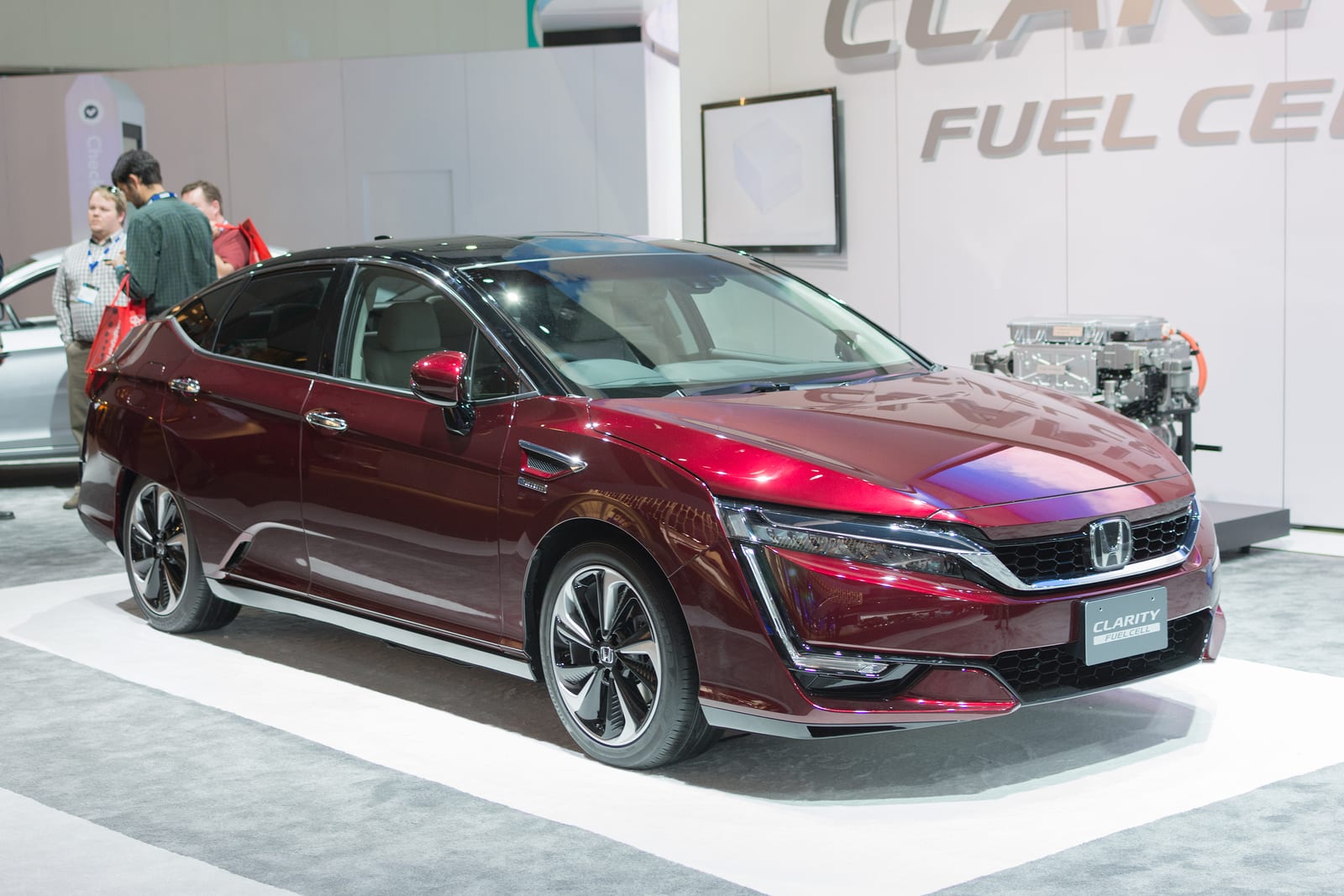Honda shows off its hydrogen fuel cell vehicle at Geneva Motor Show
March 9, 2016Clarity Fuel Cell has its second European debut
Honda has unveiled its new fuel cell vehicle at the Geneva Motor Show, marking the second debut that the vehicle has made in Europe. The Clarity Fuel Cell vehicle is Honda’s latest entry into the clean transportation market and is the first vehicle to house a hydrogen fuel cell and drivetrain system under its hood. This ensures that the vehicle is larger than its competitors, boasting of a five-seat layout. This feature alone may be enough to interest consumers, but the Clarity Fuel Cell is also priced to compete with other fuel cell vehicles, coming in at approximately $60,000.
Honda makes improvements to its fuel cell technology
The automaker has made progress in improving its fuel cell technology. According to Kiyoshi Shimizu, the Clarity project leader, Honda has reduced the thickness of its fuel cell stack by 20%. The automaker has also been able to reduce the overall size of the fuel cell system it uses by a third without sacrificing its performance capabilities. The smaller fuel cell is less expensive and less heavy than more conventional systems, making the Clarity Fuel Cell more fuel efficient.
Cost of fuel cell vehicles are a major detractor to their viability
 Fuel cell vehicles have been criticized for their high cost, as fuel cells are developed using a significant amount of platinum. This is not where the costs of fuel cell vehicles stop, however, as infrastructure expenses must also be considered. Hydrogen production is an energy intensive process, which can be relatively expensive depending on the amount of hydrogen that is needed. Conventional production processes are also heavily reliant on fossil-fuels, making fuel cell vehicles less environmentally friendly than they are intended to be.
Fuel cell vehicles have been criticized for their high cost, as fuel cells are developed using a significant amount of platinum. This is not where the costs of fuel cell vehicles stop, however, as infrastructure expenses must also be considered. Hydrogen production is an energy intensive process, which can be relatively expensive depending on the amount of hydrogen that is needed. Conventional production processes are also heavily reliant on fossil-fuels, making fuel cell vehicles less environmentally friendly than they are intended to be.
Lacking hydrogen infrastructure makes fuel cell vehicles unattractive
Honda is not the only company that has developed a fuel cell vehicle. Both Toyota and Hyundai have brought their own vehicles to the commercial market, but neither have yet found mainstream success. This is partly due to the lack of an expansive hydrogen fuel infrastructure. Without such an infrastructure, consumers have very limited access to the hydrogen they need to power their vehicles.

 HFN News is your leading source for fresh hydrogen and renewable energy updates. Amid the fast-paced growth of hydrogen companies, we provide top-notch news and insights about this exciting sector. Our coverage spans from hydrogen cars to global sustainable initiatives, and we highlight the latest in green jobs and developing hydrogen hubs. We invite you to share your local hydrogen news and explore today’s renewable energy job listings on our site. Thanks for choosing HFN News as your trusted guide to the hydrogen and renewable energy world!
HFN News is your leading source for fresh hydrogen and renewable energy updates. Amid the fast-paced growth of hydrogen companies, we provide top-notch news and insights about this exciting sector. Our coverage spans from hydrogen cars to global sustainable initiatives, and we highlight the latest in green jobs and developing hydrogen hubs. We invite you to share your local hydrogen news and explore today’s renewable energy job listings on our site. Thanks for choosing HFN News as your trusted guide to the hydrogen and renewable energy world!